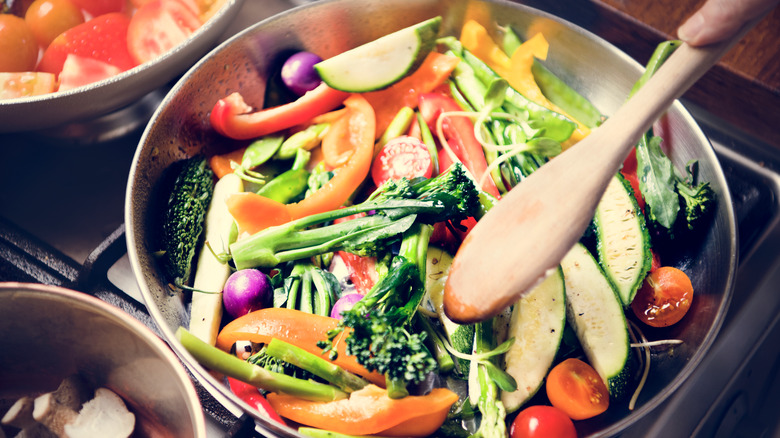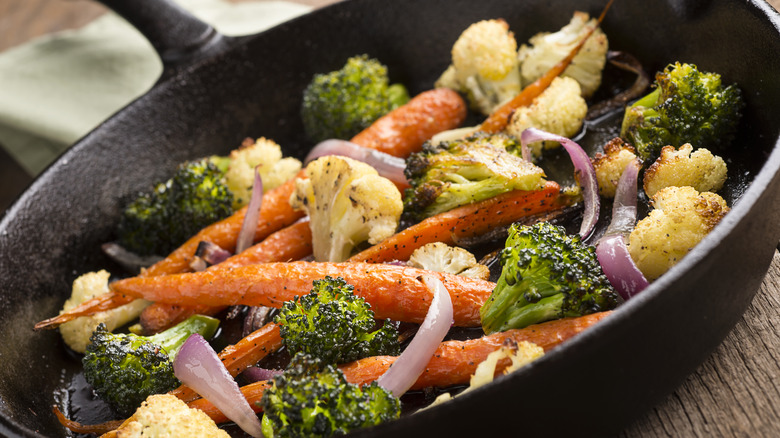Sauté Like A Chef Using The 'From The Ground Up' Method
An easy, seemingly foolproof approach to cooking vegetables, sautéing typically delivers perfect vegetables. Meaning "to jump" in French, the technique involves lightly cooking food in a small amount of oil or butter. One of the best cooking methods for tender-crisp vegetables, sautéing gently browns your veggies while maintaining their nutrients.
Although sautéing boils down to chopping up veggies and tossing them in some oil or butter, it doesn't always yield the same results. If you've ever sautéed a medley of vegetables and had it come out both under and overcooked with a few pieces that are just right, you may question how you messed up a simple cooking method. With sautéing, timing is everything — each vegetable has a different texture, meaning they have different cooking times. Enter, the "from the ground up" method.
If you typically add everything in at once, try to separate your vegetables based on cooking time. The easiest way to assess when they need to go into the pan is by how they grow. With the "from the ground up" method, vegetables that grow underground like ginger, carrots, and sweet potatoes, and tend to be on the harder side get tossed in the pan first. After a few minutes, you can put in veggies that grow above ground, such as broccoli, zucchini, or bell peppers.
Follow these tips for perfectly sautéed veggies every time
Sautéing is supposed to yield tender-crisp vegetables, but if you find that yours are on the damp side, there are a few things you can change to remedy that. First, ensure that your veggies are dry before tossing them into the pan. When they have a significantly high water content, they'll end up simmering in that water instead of crisping up in the oil.
Speaking of oil, if you're sautéing veggies for health reasons, choose an oil that's equally as beneficial. Olive oil is commonly used, but avocado oil is great for sautéing vegetables, as well. It's high in vitamin E, and also possesses a nutty, smooth flavor that adds a buttery taste to your veggies.
If you're going to salt your veggies, make sure it's well ahead of cooking them. Salt tends to bring moisture out of food – if done during the cooking process, you could end up with soggy vegetables. If you don't feel like brining them, hold the salt until after you're done cooking.

